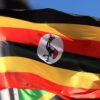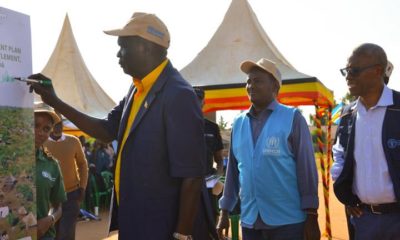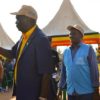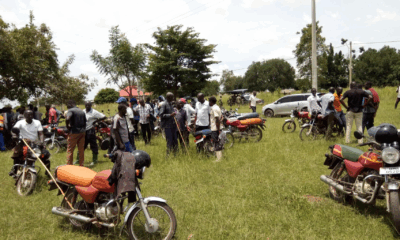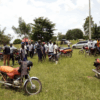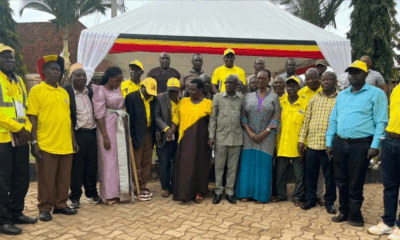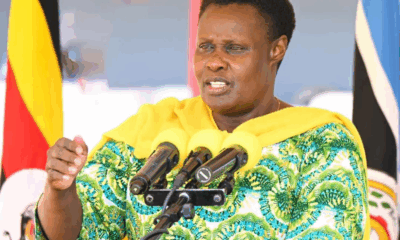News
Uganda borrows UGX296bn to protect biodiversity
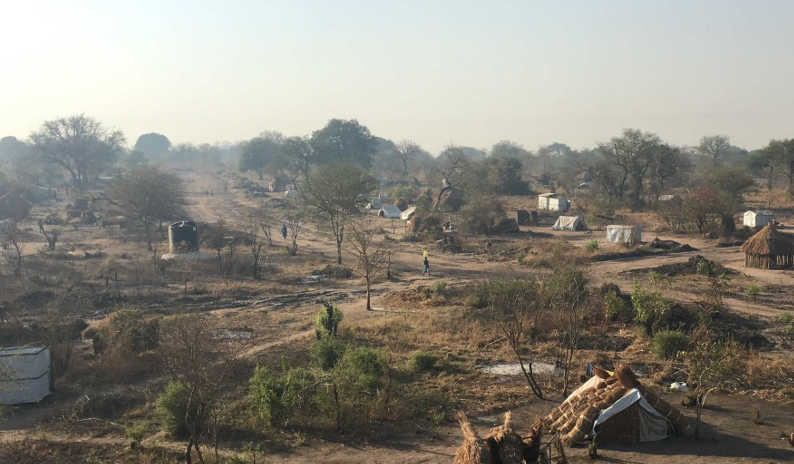
Bidi Bidi refugee camp in Yumbe West Nile region of Uganda used to be a vast forest reserved that has been destroyed
Uganda has received a loan of US$78.2m (Approx UGX296bn) from the World Bank to improve the management of forests and protected areas in the Albertine region, a statement from the World Bank Uganda office states.
The loan has been supplemented with a grant of US$70m from the bank to support refugees and hosting communities in Northern Uganda to establish forests for value chain purposes such as harvesting of timber and tourism.
The statement from the bank says: “The Albertine landscape sustains a large and rapidly growing population, biodiversity of globally important significance and which protect and deliver important ecosystems services. This landscape is also central to Uganda’s tourism industry, which makes a major contribution to Uganda’s economy in terms of foreign exchange earnings, jobs, and revenue.”
The statement adds that the project will finance development of key tourism infrastructure, acquisition of equipment for management and protection of 7 National Parks, 4 Wildlife reserves and up to 28 forest reserves.
The Albertine region is Uganda’s most important region for biodiversity. The region hosts 84 centrally managed forests, five of which are national parks and 79 are central forest reserves.
Although tourism may be suffering from the COVID-19 lockdowns that have kept tourists away, tour operators have raised concerns over poor road networks in the parks.
However, different economic activities including oil exploration and agriculture have contributed to degradation of the forests.
Only recently, Bunyoro kingdom gave away some 8,000 hectares of Bungoma forest reserve for sugarcane growing.
It is estimated that Uganda’s natural capital contributed almost 40 percent to overall wealth in 2014, but forests and wetlands are being lost and degraded rapidly.
In addition, the project will invest in plantation forestry and wood value chains with the aim of enabling plantation forestry to become a strong and self-sustaining economic sector. This is especially critical in refugee hosting communities of Northern Uganda and West Nile where refugee settlements have resulted into massive destruction of forests.
The Food and Agricultural Organisation (FAO) has already acknowledged that refugee settlements contributed greatly to the destruction of Bidi bidi forest in Yumbe district.
Tony Thompson, World Bank Country Manager for Uganda said: “This project is timely and will provide vital assistance to vulnerable communities that depend on forests to withstand climate shocks and complements our ongoing efforts to scale up support to the tourism sector which has been severely impacted by COVID-19.”
Currently, Uganda hosts 1.4 million refugees and is the largest refugee-hosting country in Africa and the third largest worldwide. The continued inflow of refugees combined with existing and protracted refugee situations has exacerbated a range of ongoing environmental impacts and associated challenges.
The bank notes that: “In refugee-hosting areas of Northern and Western Uganda, the project will support forest management in selected protected areas and aim to increase tree cover in the host community landscapes supporting agroforestry and woodlot establishment.”
The Ministry of Water and Environment will lead the implementation of the project with support from the National Forestry Authority and the Uganda Wildlife Authority.
Comments




